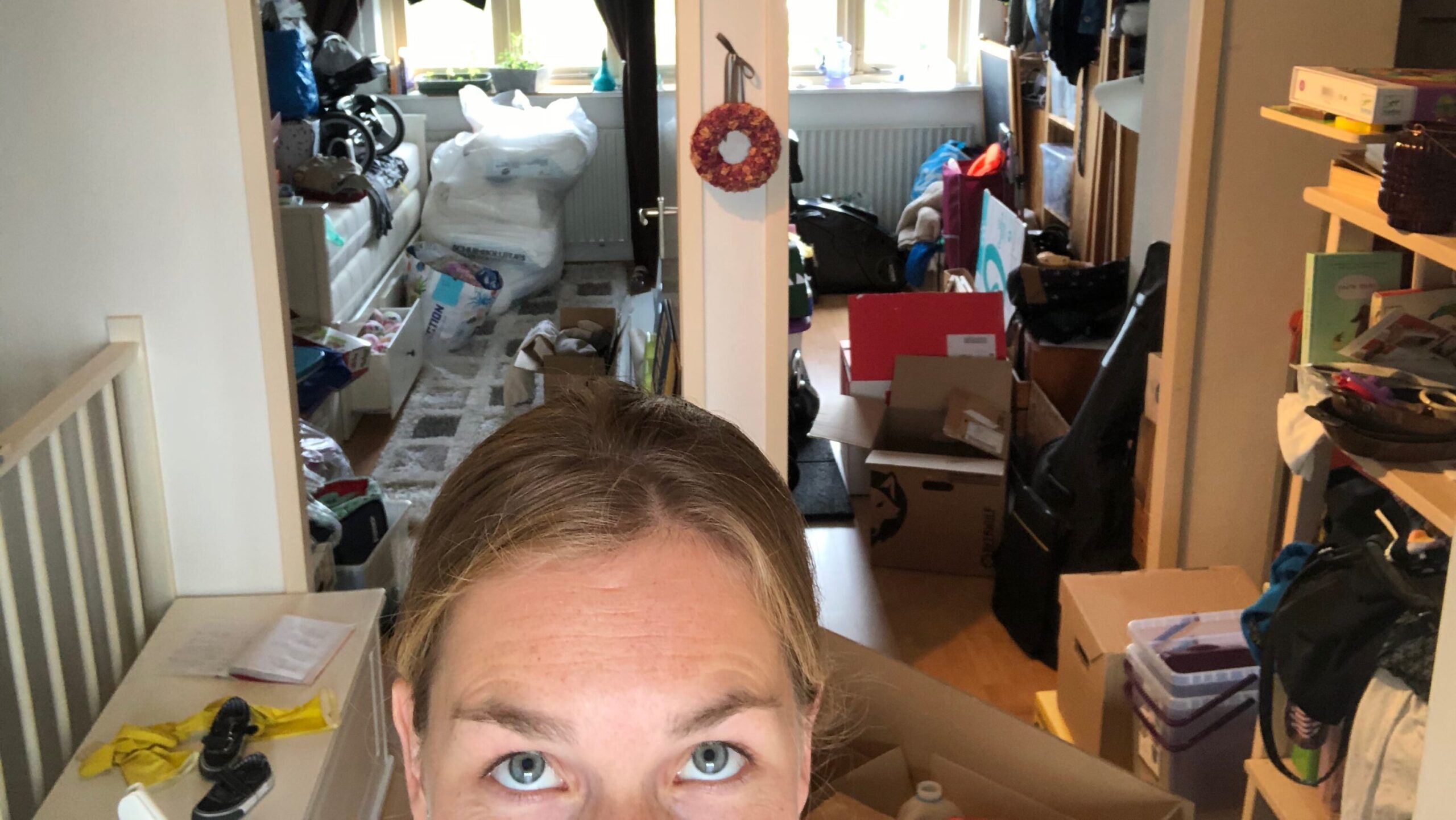
When Laura even thought about decluttering the messiest room in her house, she found it hard to breathe. It was her 3rd attempt and this time, she has to put it all in order.
“Why is it so difficult? How did I get to the place where I can barely see the floor in what was supposed to be the guest room? I wish there’d be a magic wand making it just all disappear!”.
She quickly found a few things to get rid of it, packed it in a donation bag, and brought it down to the entryway; Contemplating whether to return upstairs to the guest room.
This time the procrastination voice said, “You’ve done enough, got rid of some stuff; Let’s not go back. Don’t you have MORE IMPORTANT THINGS TO DO?”.
35mins in she aborted the project, attending to the urgent tasks… But the inner nagging of her unfinished task had set the tone for the day: yet another defeat. “Is it even possible to NOT GIVE UP? Will this room even be the guest room I wish for?”
Luckily Laura invited me over to help her. And today, Laura keeps the door to this room open. With a victorious smile on her face, she can see the guest beds ready to welcome her family over, and the familiar feeling of shame is exchanged with pride.
How did we end up tackling this task she gave up 3 times over? Those are the 5 important shifts that made it happen.
1) Get realistic
You won’t declutter 10 years of stuff in one day!
To conquer the feeling of defeat, you need to set realistic goals that will make you feel like a “win” day every time you go to do the work. Account for who you are, how fast/slow you tend to work, how long is your attention span, and how sentimental you are over your possessions. Decluttering is not a matter of handling stuff, but a matter of handling your personal history and your emotions. Allow yourself more time and divide this project into realistic chunks. It took Laura 3x4hrs and helping hands to tackle her room.
2) From non-urgent to important
You might have 10 more urgent things to do and a hotel to put up your guests so it’s crucial to get clear on the importance of this task.
What will you GAIN out of having this task finally done?
If you experience the ever-nagging feeling at the back of your mind that behind that closed door is a big to-do, the frequent thoughts of “I am so disorganized”, or even feelings of shame you might consider this important. All the time you spend thinking about it, dealing with it, or loathing in negative thoughts you lose time, and focus, and set your emotional baseline for the day chronically low.
When the important tasks get done, you will have more energy, mental space, and time to do the urgent tasks with more ease.
3) Be held accountable
It’s super important that you are held accountable and motivated! Having real people helping (like professionals) you or at least making you company (like friends or family) oftentimes helps.
If your level of discomfort is too high, you might want to come up with a DYI strategy for your own accountability: PLAN your sessions as if you’d have an actual appointment with a person, put aside the time, and schedule it in your agenda.
Remind yourself of the IMPORTANCE and the WHY you want to show up ready. Set up a checklist for your appointments and mark them done to celebrate each step. Take before and after pictures of your progress to motivate you further.
4) Help your brain to make decisions easier
Those rooms are usually a catch-all situation with stuff from different times and chapters of life; Most likely unused and unseen for a while.
It takes a lot of executive power to skip from object to object, recognize it, and make a decision over keeping vs. letting go, especially if you haven’t seen that stuff for so long that it oftentimes triggers sentiment.
Such cognitive and emotional rollercoaster oftentimes results in overwhelm. To beat this, help your brain a bit!
Start your first session by CATEGORISING ONLY and spend your executive power on grouping like-items together (the sentimental, the practical, the seasonal, the ones that don’t belong to you, etc.). Not only it will be less mental gymnastics in your next session because the stuff is already categorized, but you might be less sentimental about seeing those long-lost treasures for a second time over.
5) Done better than perfect
When you face paralysis, it often times stems from perfectionism. We want to do it all and do it well. We want to think through how it’s all gonna look like in the end, and end up getting stuck in the planning and the fantasies.
Remember, that if you don’t start it will never reach perfection. “Just start” with decluttering and space-making and leave the organizing decisions and final touches for when you’re done with the hard part.
It will come more naturally when the room is free of unnecessary clutter.
How many times have You tried decluttering your worst room, and which one of the points have you missed to implement? Feel free to comment ![]()
Do you need more PERSONALIZED TIPS AND SOLUTIONS FOR YOUR PARTICULAR SITUATION?
I offer virtual organizing sessions 1:1!
Check out how it works and sign up for a free call if you want tailored guidance, and accountability for your next home organizing or decluttering project!

